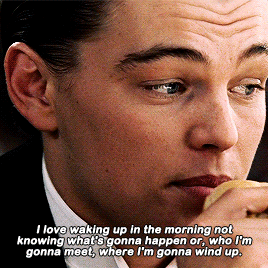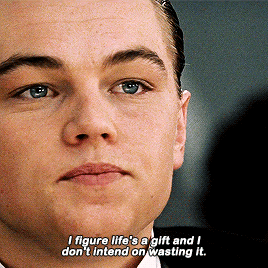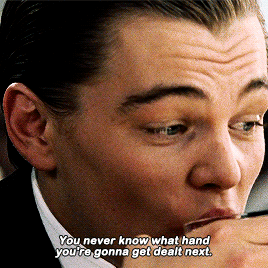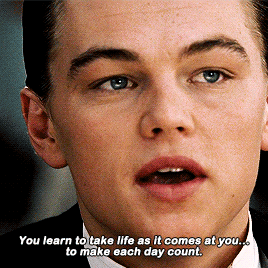Don't wanna be here? Send us removal request.
Text

[ dominique davenport, she/her, cisfemale ] was that FRANCESCA FOLLETT? The TWENTY-FIVE year old is a LADY, how exciting to see them this season! rumors have it they are SOCIABLE and ADVENTUROUS, but i’ve heard they are ESCAPIST and REBELLIOUS as well – maybe that’s why they’ve been called the BOHEMIAN. i have even heard that SHE FLED HER PARENTS’ HOME TO LIVE WITH HER AUNT IN PARIS AFTER BREAKING OFF AN ENGAGEMENT LAST SUMMER. — played by sunshine, 23, est.
BIOGRAPHY:
( tw: parental death )
Beatrice and Howard Follett were the sort of arranged pair that made others believe they too could find love with a match made by their families. At least, that was the part they played publicly – and they played it well. Privately things were more strained: Howard resented his wife for her intelligence, wealth and refusal to bend to his every whim, and Beatrice missed the family she left behind in France. Their marriage was less about love than security and duty to their respective families, both of which insisted that their match would cement them firmly among the upper echelons of society. This was the family into which Francesca Follett was born, kicking and screaming.
Growing up, Francesca excelled in her studies, learning everything she could about literature, linguistics, politics and philosophy. Her father disapproved of these pursuits but her mother convinced him that it was important for a young lady to know a little bit about as much as possible, if only to make her a better conversationalist. This eased Howard’s more conservative concerns about his daughter’s unusually robust education, and Francesca flourished. She grew into a clever, quick-witted and well-read young woman with a voracious appetite for learning and a tendency to debate others that was somehow both off-putting (to her father, at least) and entertaining.
But, as things go, no one can remain happy forever. For Francesca, childhood ended the year she turned fifteen. Her mother contracted consumption that year – tuberculosis of the lungs – and Francesca was helpless to do anything but watch as Beatrice grew weaker and more fatigued, progressing slowly toward the grave. Slow and inevitable though her mother’s death was, it still came as a shock when just days before Francesca’s sixteenth birthday, her mother fell asleep and never woke.
The loss of Beatrice put a strain on Howard, turning him into an even colder, more distant father. He had little time for Francesca and turned instead to gambling and alcohol, leaving her to run the house and struggle through society on her own. It was only after a visit from her mother’s sister, Marie, that Howard seemed to realize he was doing a disservice to his daughter. He decided that Francesca needed a female figure in her life, someone to continue her education and ensure that she was ready for adulthood, and sent her away to live with her aunt.
Her aunt Marie was a childless widow with more wealth and land than half of the people Francesca had met before her journey to France. Marie lived lavishly and unapologetically, embracing a haute bohème lifestyle filled with musical, artistic, literary and spiritual pursuits. She was a feminist, a fashion obsessive and not at all shy about entertaining the affections of single gentlemen when she needed an escort to the opera or ballet. Francesca suspected that her father did not know this side of her aunt – else he never would’ve sent her away with her – but she loved it. With her aunt, she experienced a freedom she never knew women might have.
Francesca lived with her aunt from the ages of seventeen to twenty-three. Her love of fashion, music, literature, art and music grew exponentially during this time, and her aunt never stifled her educational pursuits either, allowing her to attend feminist lectures and to study under tutors normally reserved for the male gentry. She began to envision a life for herself that was all too similar to her aunt’s – independent, free of unnecessary male supervision, free of anything she did not invite – but, as before, the good days soon came to an end.
Howard remarried the year Francesca turned twenty-three and demanded that she return home to both meet her new step-mother and reintroduce herself to English society. She did so reluctantly, bidding a tearful goodbye to the woman she viewed as her second mother in order to fulfill the duty she felt she owed to the man who brought her into the world.
The new Mrs. Follett hated her instantly. Elizabeth was a stern woman, strict and austere to a fault, a believer in rules and propriety. She insisted that Francesca was practically wild and demanded that she behave more conservatively. Francesca refused, turning her nose up at the suggestion that she limit herself. She snuck off to attend feminist rallies, attended lavish parties, engaged in socratic debates with bewildered guests at dinner parties and flirted shamelessly with the sons of her father’s friends.
The resulting dynamic in the Follet household was tense to say the least. Fighting, tears and screaming matches were regular events, all culminating in the worst threat of all when she turned twenty-four: marriage.
Her father told her over dinner that she was to marry the son of his business partner, a man who, as far as she could tell, was nothing more than a bore. He had never shown any interest in her or her interests, had done little more than glare at her disdainfully over plates of fruit during a garden party earlier that year, but Howard insisted. If you will not obey us, he insisted, perhaps you will obey your husband.
Francesca had no intention of obeying anything other than her own will, of course, and she informed her would-be husband of this upon their first meeting post-engagement, telling him in no uncertain terms that she would not marry him. She fled that very night, returning to France and the comfort of her aunt’s home.
Marie welcomed her, though she made it clear that running would not be a permanent option. You do not run away, her aunt told her, you will return, and you will show them who you are.
Her aunt amended her will, making Francesca the heir to her wealth and property, and sat her down, explaining that she must return to England – she could not harbor a runaway forever, and however nice it might be to imagine a completely unattached future, living that way as a young woman with a less than savory reputation was quite different than living that way as a widowed woman who’d spent years cultivating relationships and good will.
There is a difference between choosing to be alone and others choosing to leave you alone, ma fille. Do not let your father’s version of who you are become the one everyone sees.
And so, armed with the knowledge that her future was secure with or without her father’s blessing, Francesca returned to England. Her father and stepmother were not thrilled by her return, though Howard frequently mentioned how glad he was that she’d come to her senses. She might’ve ruined her chances with her former betrothed, but he insisted he could find her another suitable match.
Francesca had no intention of letting that happen now that she knew she would one day be able to provide for herself, but she kept that little fact to herself. She did not yet have a place to live in England, after all, and she would like to remain there for a while, if only to make sure that when the ton gossiped about her, the stories they told were nothing but true.
Her name and reputation would not be made by her father anymore than her future would be.
6 notes
·
View notes
Text
“She dreamed about escaping. That was all she dreamed about — escape.”
— Paris, Texas (1984) (via larmoyante)
30K notes
·
View notes
Photo
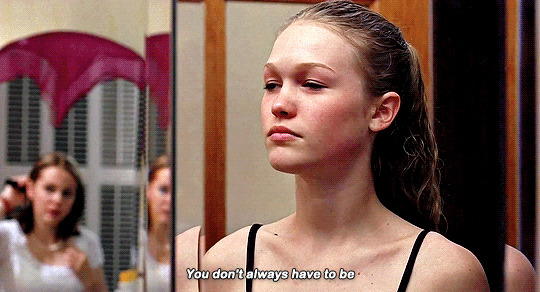
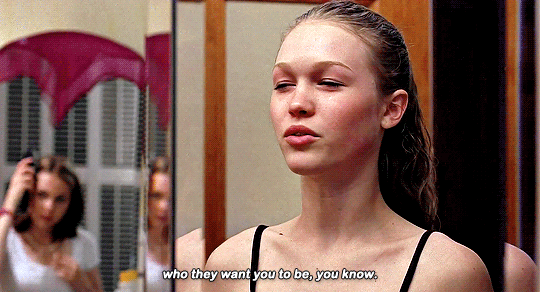
“You forget, I don’t care what people think.” “Yes, you do.” “No, I don’t.”
10 Things I Hate About You (1999) dir. Gil Junger
11K notes
·
View notes

